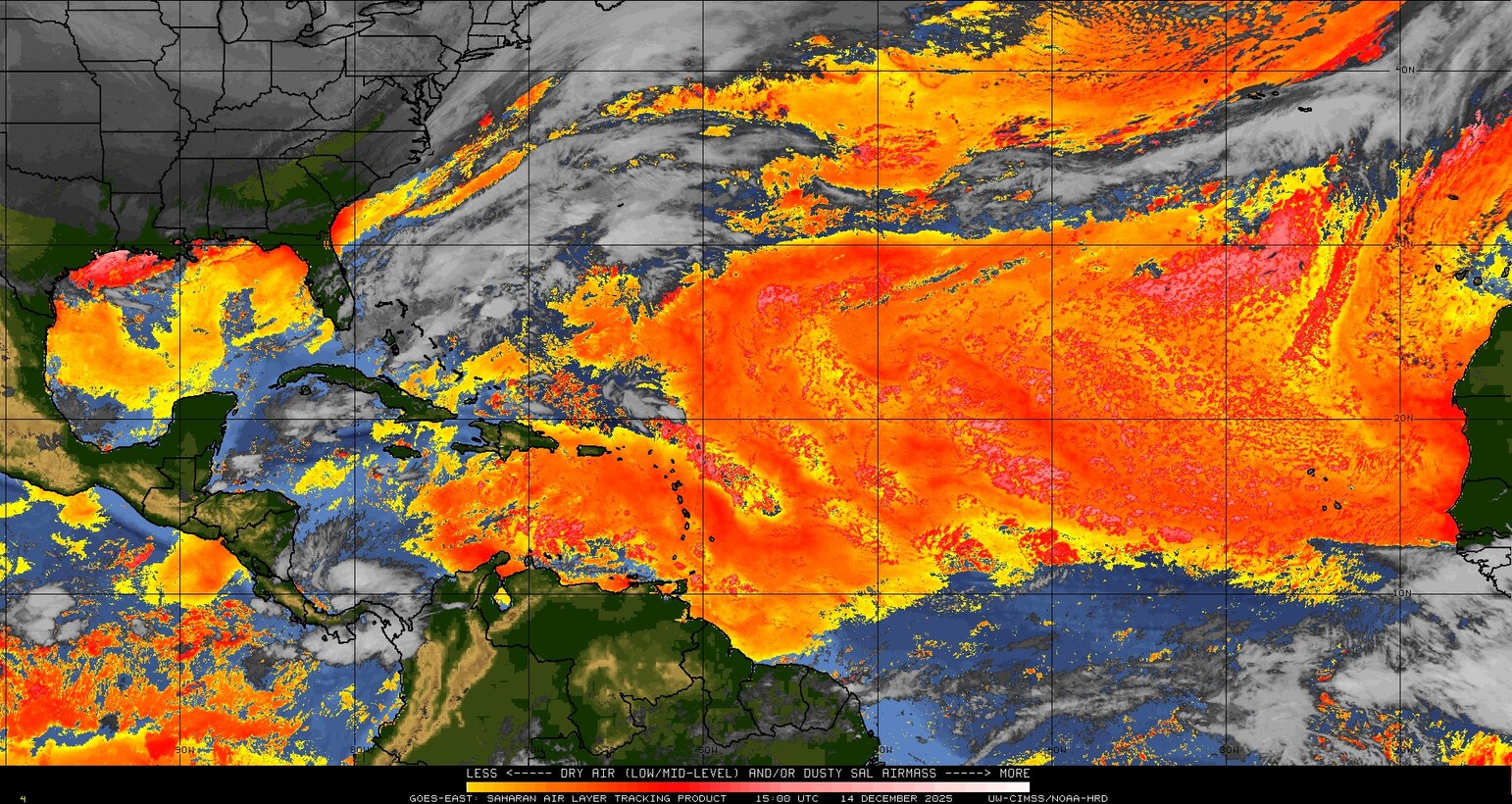A Rare Tropical Storm Forms in the South Atlantic: Iba

The only ocean basin on Earth that does not regularly see tropical cyclones develop is the South Atlantic, but it had a rare tropical storm form on Sunday. Tropical Storm Iba developed about 600 miles northeast of Rio de Janeiro, Brazil, according to the Brazilian Navy Hydrographic Center (BNHC). Ocean temperatures in this region were quite warm, near 29°C (84°F).
Satellite fixes of the system, initially dubbed “Invest 90Q”, showed a modest increase in organization on Sunday morning. The BNHC rated Iba as a minimal tropical storm with sustained winds of 40 mph and a central pressure of 1008 mb at noon EDT Sunday. Steering currents will take Iba to the southeast, out to sea, and the system is not a threat to any land areas. Iba is expected to slowly strengthen to sustained winds of 45 – 50 mph by Monday morning, but is likely to slowly weaken by mid-week, never attaining hurricane status.
While subtropical storms form about once every year in the South Atlantic, this is the first fully tropical cyclone there since 2010.
Until the 21st century, it was widely thought that full-fledged tropical cyclones did not form in the South Atlantic. Although waters can be sufficiently warm, there is often too much wind shear, and tropical waves that can serve as seedlings for tropical cyclones do not stream regularly off the coast of southern Africa as they do from northern Africa.
In 2004, expectations were upended when a non-tropical system off the coast of Brazil gradually transitioned into a tropical cyclone and then turned back westward. The system came to be known as Hurricane Catarina, as it made landfall in the Santa Catarina province of Brazil as a Category 1 equivalent on March 27, 2004. More than 38,000 structures were damaged, and another 1,468 collapsed, with three people killed and 185 others injured.




